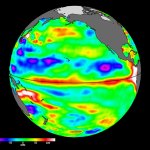By Josh Wingrove
Jun 3, 2021, 5:12 PM – Updated on Jun 3, 2021, 6:24 PM
Word Count: 884
Through the World Health Organization-backed Covax program, the U.S. plans to distribute an initial 6 million shots to Central and South America, 7 million to Asia including hard-hit India and 5 million to Africa, the White House said in a statement.
“As the days get brighter and brighter at home, we’re focused on driving progress to help the pandemic around the globe,” White House Covid-19 response coordinator Jeff Zients said at a briefing Thursday.
The move is a watershed moment for the U.S., which secured the first hundreds of millions of doses made on its soil for domestic use but intends to be an engine of vaccine production globally. As vaccine demand wanes at home, Biden is facing calls internationally to release the U.S. stockpile of shots made by Pfizer Inc., Moderna Inc. and Johnson & Johnson in order to curb the rise of coronavirus variants.
The White House described Thursday’s announcement as only the first tranche of a plan to begin supplying the world with vaccines.
Zients said the 25 million doses to be released first will be comprised of shots from Pfizer, Moderna and J&J. White House officials didn’t specify breakdowns beyond that, or say whether particular countries will get a particular vaccine.
The Covax donations will go to dozens of countries across Central America, South America, Asia and Africa including Pakistan, Sri Lanka, Brazil and Argentina, along with India.
Recipients of the six million doses sent directly also will include Ukraine, Kosovo, Haiti, Georgia, Egypt, Jordan and Iraq, according to the White House. The U.S. will retain control of where the shots donated to Covax are ultimately distributed, National Security Adviser Jake Sullivan said in the briefing. Sullivan said India will receive doses directly as well as from Covax, giving it a supply from both channels.
The so-called Northern Triangle nations of Guatemala, El Salvador and Honduras will receive Covax doses, while Mexico will receive doses directly from the U.S. Vice President Kamala Harris will visit the region next week and called the leaders of Mexico, Guatemala and India about the vaccine distribution plan before Thursday’s announcement, her office said.
Administration officials have consulted with vaccine manufacturers and international organizations on aspects of the operation, including transportation logistics and legal requirements, one person familiar with the plans said.
Thursday’s announcement included a framework to distribute shots among countries based on need. Biden has said his administration will donate at least 80 million doses by the end of this month, though that included 60 million doses of AstraZeneca Plc’s shot that are mired in a safety review and aren’t yet available for use. The White House reiterated on Thursday that it would send at least 80 million vaccines abroad by the end of June.
The move is a sign of a cresting wave of American vaccine production poised to meet world demand. The gap between U.S. doses delivered and actually administered has risen to 70 million — much of which are in various stages of distribution. But the figure is an indication of the U.S. glut Biden has to work with.
The ONE Campaign, an anti-poverty group, called the 25 million “a welcome step” but called on the U.S. to share its AstraZeneca doses and to lean on other wealthy nations to begin their own donations. “This is a once in a generation crisis, and as we approach the G7 next week, the world is looking to the US for global leadership and more ambition is needed,” the group’s acting chief executive Tom Hart said in a statement.
In addition to the Biden administration’s plans to begin sharing doses it bought, Pfizer and Moderna have both begun filling international orders from U.S. plants that previously supplied only the U.S. government.
Zients said the U.S. would also remove so-called priority ratings assigned under wartime powers to three other drugmakers: AstraZeneca, Sanofi and Novavax. That means suppliers won’t have to give preference to U.S. orders from those companies.
Harris is set to meet with the leaders of Mexico and Guatemala next week on a trip through the region. Mexico and other countries have publicly asked the U.S. to share its vaccines, and some European allies had criticized Biden for hoarding U.S. production.
Next week, the president will leave for his first international trip, a series of stops in Europe including meetings of the Group of 7 nations, NATO and the European Union. A summit in Geneva with Russian President Vladimir Putin is also planned.
In the U.S., 297 million doses of vaccines have been administered so far. In the past week, an average of 1.1 million doses per day were administered, down significantly from just several weeks ago.
Biden has said he will not use U.S. vaccines as a diplomatic tool, after accusing China and Russia of leveraging doses of their vaccines for foreign policy gains.
–With assistance from Shira Stein.






















 Become an Insider
Become an Insider